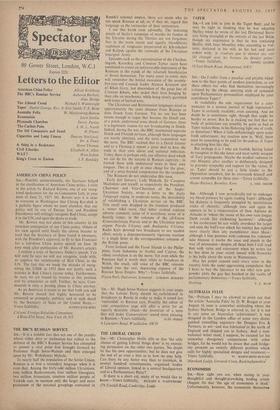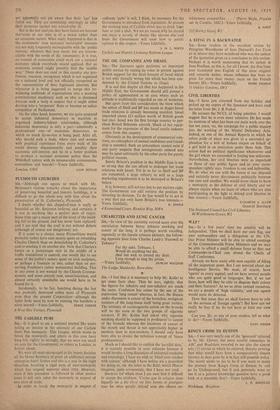SIR,—How right you are, when stating in your thoughtful and
thought-provoking leading article (August 16) that 'the age of economists is dead.' Unfortunately, however, the economists themselves
are apparently not yet aware that their 'age' has faded out. They are continuing untiringly to offer their panaceas against any conceivable ill.
But in the last analysis they have failed not because the- crisis of our time is of a moral rather than an economic nature. What really happened is that in the economists' view sectional 'materialist' interests are not only frequently incompatible with the 'public interest,' whatever that may mean, but are irrecon- cilable with the needs of the community. It is true, no council of economists could work out a national economy which everybody would applaud. But an economic council might possibly find the 'middle way.' There does not exist in this country any pro- fession, vocation, occupation which is not organised on a national level and not officially recognised as the representative of their legitimate interests. But whenever it is being suggested to merge this be- wildering multitude of organisations into a working constitutional machinery such an idea is dismissed because such a body is suspect that it might either develop into a 'corporate' State or become an unfair competitor of Parliament.
On the other hand, however, we are quite prepared to accept industrial democracy as manifest in organised industry-labour relationship, although industrial democracy is only a part—admittedly a predominant one—of economic democracy, to which so much lip-service is being paid. After all, why should such a body, where men and women with practical experience from every walk of life could discuss dispassionately and sensibly their economic self-interest, not be in a better position to produce a national economic policy than the Whitehall system with its innumerable commissions, committees and boards?—Yours faithfully,































 Previous page
Previous page